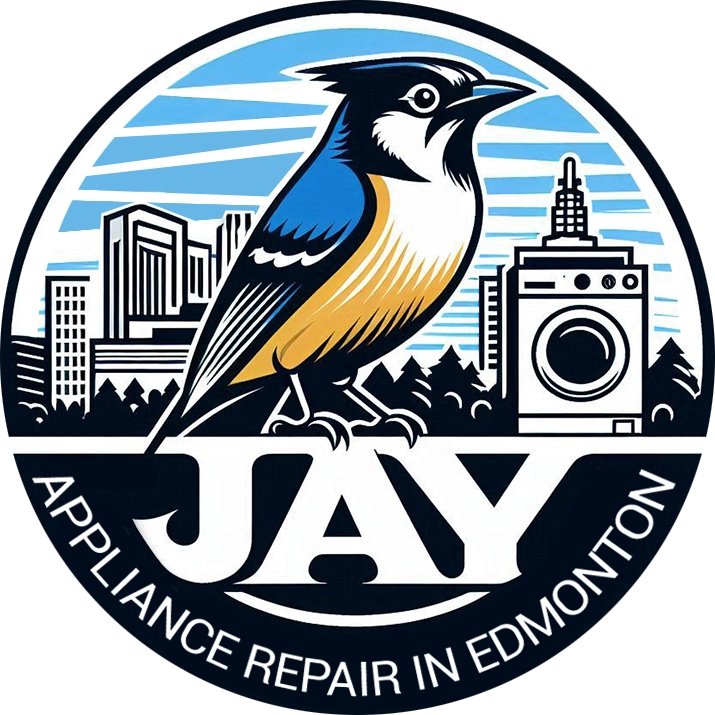We expect our laundry to come out fresh, soft, and free of detergent. When clothes finish a wash cycle covered in streaks, white spots, or sticky residue, it feels frustrating and disappointing. This issue not only wastes time but also makes us question whether the washer itself is failing. At JAY Appliances, we know this problem is more common than many realize. Let’s go through the reasons why soap remains on fabrics and the practical steps we can take to stop it.
Detergent Quantity Matters
Many of us assume more detergent means cleaner clothes, but it often causes the opposite effect. High efficiency washers use less water, so too much detergent cannot dissolve completely. Instead, it clings to fabric fibers and dries as residue. We should always measure according to the instructions on the detergent packaging. If our water is soft, we actually need less soap than usual because suds build faster and rinse poorly. A helpful trick is to run an extra rinse cycle after heavily soiled loads if we suspect excess detergent might be left behind.
Water Temperature Choices
Another reason residue forms is the wrong water temperature. Cold water saves energy and protects colors, yet it can leave detergent grains undissolved. When powder detergent is added to a cold cycle, some particles may not dissolve fully and remain on fabrics. Choosing warm water for certain loads can improve rinsing. If we prefer cold water, switching to a liquid detergent works better since it dissolves quickly regardless of temperature. Adjusting the water setting depending on the type of load is a simple but effective way to improve wash results.
Washer Maintenance and Cleanliness
Over time, washers collect buildup inside the drum and dispenser. Detergent, softener, and lint stick to surfaces and clog small openings. If the rinse cycle water cannot flow freely, leftover soap is more likely to remain. Cleaning the detergent drawer regularly and wiping the rubber seals helps a lot. Running a monthly maintenance cycle with hot water and a washer cleaning solution clears hidden deposits. Our team at JAY Appliances often finds that residue complaints come from machines that simply need internal cleaning. Staying consistent with maintenance saves us from dealing with recurring laundry problems.
Rinse Cycle Performance
Sometimes the rinse cycle itself is not working as intended. A washer may not be filling with enough water during rinse due to a clogged inlet valve or kinked supply hose. When rinse water is limited, soap has no chance to fully wash out. We can check the hoses behind the unit to confirm water is flowing freely. If we notice weak water pressure or incomplete rinsing, that may point to a mechanical fault. In such cases, scheduling washer repair in Vancouver is a practical step, since technicians can test and replace faulty valves or sensors that affect rinsing performance.
washer repair Vancouver
Type of Detergent Used
Detergent formulas vary, and not all are suited for modern washers. Using standard soap in a high efficiency unit produces too many suds, overwhelming the rinse cycle. The wrong detergent type can also create sticky film on fabrics. We should always use detergent marked HE for high efficiency models. Switching from powder to liquid or from liquid to pods may also help, depending on water hardness and washer design. When clothes consistently feel filmy, testing another detergent type is an easy experiment before assuming the machine itself is at fault.
Load Size and Distribution
Packing the drum too full leaves little room for water to circulate. Clothes rub against each other instead of moving freely, so soap has fewer chances to rinse out. On the other hand, very small loads sometimes do not balance properly and fail to agitate enough. A medium balanced load is usually best. We should spread items evenly inside the drum and avoid heavy blankets mixed with light shirts. These habits make a noticeable difference in how well detergent rinses from fabric fibers.
Hard Water Complications
In some areas, hard water causes minerals to react with detergent, leaving chalky deposits on clothing. Soap scum from hard water looks similar to excess detergent but feels different, more like a film than powder. Adding a water softening agent or switching to detergents designed for hard water can solve this. If we notice white streaks that persist despite careful detergent use, testing our water hardness is worthwhile. Solutions like water softener pellets or whole house systems improve not just laundry but also the lifespan of appliances.
When Professional Help Is Needed
There are times when residue points to a deeper mechanical issue. Faulty sensors, failing pumps, or control board errors can reduce rinse performance. If the washer runs through cycles but clothes remain consistently soapy, it may be more than just detergent habits. Calling a professional prevents repeated frustration and potential water waste. For anyone needing reliable appliance repair in Vancouver, this resource is available: appliance repair in Vancouver. Our team has seen cases where minor valve replacements or pump cleanings solved issues that homeowners battled for months.
Preventing Future Build Up
We can adopt small habits that reduce the chance of soap residue becoming a regular issue. Measuring detergent carefully, running periodic cleaning cycles, and avoiding overloaded drums all work together. Another useful tip is leaving the washer door slightly open after use, which prevents moisture buildup and helps detergents fully dry away. For anyone with persistent problems or needing a closer inspection, the best step is to reach out directly. Our team is available through this link for simple scheduling: contact us.
FAQ
Why do clothes still smell of detergent after rinsing?
This usually happens when too much detergent is used or the rinse cycle is not filling with enough water. Adjusting soap amounts or checking water flow often solves it.
Is liquid detergent better than powder for preventing residue?
Yes, liquid dissolves more completely in both warm and cold water. Powder may leave particles, especially in cold cycles, unless dissolved beforehand.
Can running extra rinse cycles damage the washer?
No, extra rinses are safe. They use more water and energy, but they can help when clothes need a thorough rinse after heavy loads.
What is the best way to clean detergent buildup inside a washer?
Running an empty hot cycle with a washer cleaner or vinegar clears buildup. Wiping seals and the detergent drawer regularly also prevents clogs.
How do I know if residue is from hard water or detergent?
Detergent residue feels soapy and can be rinsed out with extra water. Hard water residue feels chalky and often requires a water softener to prevent.

